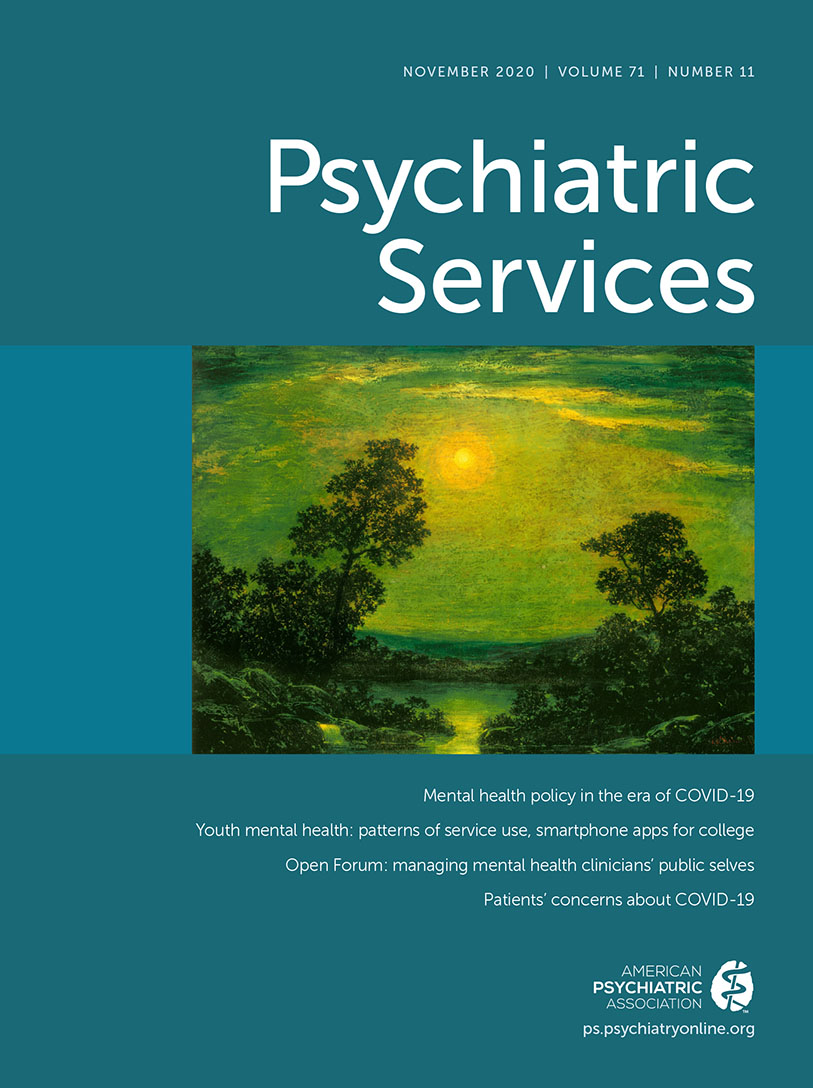Frontline Redeployment of Psychiatry Residents During the COVID-19 Pandemic
Early in its transmission in the United States, COVID-19 had a disproportionate impact on New York City, pushing local hospitals nearly to their limits. In the intensive care unit (ICU) at New York–Presbyterian/Columbia University Irving Medical Center (NYP/CUIMC), the capacity of 99 beds was exceeded by nearly 300% in April 2020. This surge required expansion and restructuring of existing inpatient medical services, as well as “redeployment” of attending and trainee physicians from various specialties, including psychiatry. Redeployed residents were essential in directing care for massive numbers of critically ill patients requiring mechanical ventilation and other life-supporting interventions. Here, we describe the process of the redeployment of psychiatry residents at a major urban academic medical center to the front lines of the COVID-19 pandemic.
The psychiatry residency at NYP/CUIMC comprises 10–12 residents in each of the four postgraduate year (PGY) classes. Of 46 residents in the program during the 2019–2020 academic year, 35 participated in redeployment between April 1 and June 3, 2020. The first wave included first-year (PGY1) residents already rotating on medicine services, as well as volunteers from senior classes, before quickly escalating to a maximum of nine residents redeployed by the third week in April, during the city’s peak in hospitalizations. After taking volunteers, program leadership approached individual residents to fill remaining redeployment spots, with sensitivity to residents with complicating circumstances, such as chronic health conditions.
Most residents were redeployed onsite in our primary hospital as medical interns on an expanded ICU team caring for COVID-19 patients, despite some unfamiliarity with managing ventilators. Psychiatry residents were preferentially assigned to ICUs rather than floor or step-down services, where staffing ratios are less favorable and interns have less supervision. Residents were asked to work no more than 3 weeks in the ICUs—a leadership decision to disperse the burden of this work, at the cost of potentially exposing a larger number of residents to the virus. Ultimately, four redeployed residents home-quarantined after developing COVID-19–like symptoms. Given the taxing nature of working in the ICUs, however, we believe that distributing the burden over additional residents was optimal, improving patient care and reducing resident burnout during a crisis of indefinite length.
Less experienced residents, who are closer to training in internal medicine, performed most onsite services. In total, 83% of PGY1 and PGY2 residents were redeployed onsite, versus 67% of PGY3 and 50% of PGY4 residents. Nevertheless, among residents who served onsite in ICUs, the average time commitment (11.4 days) was very similar regardless of PGY class. Additionally, four residents from the PGY3 and PGY4 classes were redeployed remotely as part of a palliative care consultation service assembled to engage in goals of care discussions with families and proxies of critically ill COVID-19 patients.
To support house staff working amid the pandemic, the Department of Psychiatry established a debriefing hotline with volunteer mental health professionals. Within the psychiatry residency, process groups also continued to meet remotely. A new process group facilitated by a trauma-informed psychologist was created for PGY1 residents, given their oftentimes distressing experiences of triaging and treating an unprecedented wave of very ill patients. When the number of new cases subsided, the group transitioned to discussing the distinct challenges involved in caring for patients who were enduring long courses of intubation and infirmity. Despite undeniable challenges, many redeployed residents reported feeling a sense of professional duty to take part, as well as pride in their contributions. However, many also remained uneasy and frustrated about the lack of a clear institutional plan for a second viral wave and what potential future redeployment might mean for their safety, well-being, and specialty training.
Many patients who were intubated for respiratory failure in March still face a long path to recovery. Those who received tracheostomies and were discharged to rehabilitation facilities remain at high risk for medical complications and readmission, and they may have trauma- and stress-related reactions. As psychiatry residents transition back to their primary training, they are uniquely positioned to empathize with the experiences of patients and other health care providers and to speak with authenticity concerning the collective trauma of the pandemic. These shared experiences will undoubtedly shape our work on inpatient, outpatient, and consultation-liaison psychiatry services for years to come.
As COVID-19 continues to spread at the time of this writing, we hope that sharing the experience of our medical center will provide a useful framework as other psychiatry residency programs seek to balance the exigencies of this crisis against their responsibilities and objectives in educating the next generation of psychiatrists.



